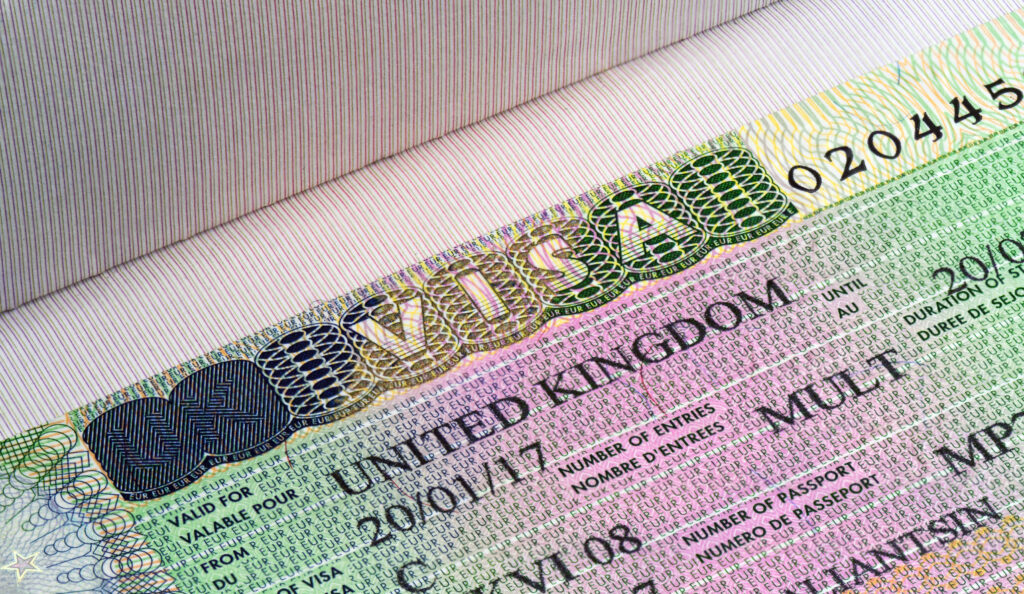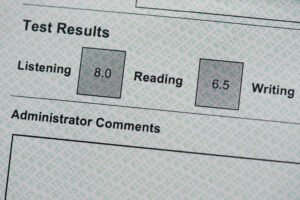In 2024, the UK made several important changes to the student visa rules. These changes affect who can come to the UK, what tests you need to take, and how you can switch visas.
Bringing Family Members
From January 2024, most international students cannot bring their family members (dependants) to the UK. This rule has an exception for students studying postgraduate research programs, like a PhD, and those on government-funded scholarships. This change helps to reduce the number of people coming to the UK and ensures that students focus on their studies.
Visa Switching Rules
Before, students could switch to a work visa if they found a job before finishing their course. Now, students must finish their studies before they can switch to a work visa. This encourages students to complete their education and gain all the necessary skills.
English Language Tests
To get a student visa, you must prove you can speak, read, write, and understand English. Here are some tests that are accepted by the UK government:
- IELTS (International English Language Testing System)
- PTE Academic (Pearson Test of English Academic)
- C1 Advanced (formerly known as Cambridge English: Advanced (CAE))
- Trinity College London Integrated Skills in English (ISE)
- LanguageCert International ESOL
- PSI Services (UK) Ltd ESOL
You need different levels of English depending on your course. For a degree course, you need a B2 level. For courses below degree level, you need a B1 level.
You can also prove your knowledge of English if you have:
- Passed an English language GCSE, A level, Scottish National Qualification level 4 or 5, Scottish Higher or Advanced Higher, taken through a UK school when you were under 18
For a full list of approved tests and providers, you can visit the UK government website.
Financial Proof
You need to show that you have enough money to pay for your course and living costs for at least nine months. Starting January 31, 2024, the Immigration Health Surcharge (IHS) will go up. This fee is for using the UK’s health services. The new IHS fee is £1,064 per year.
Post-Study Work Visa
After finishing your studies, you can stay and work in the UK for up to two years with a Post-Study Work (PSW) visa. This visa lets you gain work experience in the UK.
Application Process
To apply for a UK student visa, follow these steps:
- Choose the Right Visa: Decide which visa you need based on your course.
- Gather Documents: Collect your passport, proof of acceptance from a UK school, financial evidence, and a recent photo.
- Meet English Requirements: Show you passed an English test like IELTS.
- Apply Online: Fill out the visa application online and pay the fees.
- Attend an Interview: You might need to go to an interview or provide biometric information (fingerprints and photo)
Successful Visa Advice
To increase your chances of a successful visa application, follow these tips:
- Start Early: Begin your visa application process as soon as you receive your offer from a UK educational institution. This will give you enough time to gather all necessary documents and meet any requirements.
- Prepare Thoroughly: Ensure all your documents are complete and accurate. This includes your passport, financial statements, and proof of English proficiency. Double-check for any errors or missing information.
- Financial Proof: Clearly show you have sufficient funds to cover your tuition and living expenses. This includes providing bank statements or a letter of financial support.
- English Proficiency: Take and pass an approved English language test like IELTS or PTE Academic. Ensure your scores meet the required level for your course.
- Follow Guidelines: Adhere to the guidelines provided on the official UK government website. This includes understanding visa fees, health surcharge, and application procedures.
- Seek Help if Needed: If you find the process overwhelming, consider seeking assistance from a qualified immigration advisor or solicitor. They can provide professional guidance and ensure your application is correctly completed.
- Stay Informed: Keep up-to-date with any changes to visa rules or requirements. Regularly check the UK government website for the latest information.
Common Reasons for Visa Rejection
Even with thorough preparation, some student visa applications may be rejected. Here are some common reasons why a student visa might be denied based on the latest studies:
- Incomplete or Incorrect Documentation: Missing documents or errors in the application can lead to rejection. Ensure all paperwork is complete and accurate.
- Insufficient Financial Proof: If you do not show enough funds to cover your tuition and living expenses, your visa application may be denied.
- Low English Language Scores: Not meeting the required English language proficiency levels, as evidenced by tests like IELTS or PTE Academic, can result in rejection.
- Suspicious or False Information: Providing false information or documents will lead to immediate rejection and possible future bans.
- Failure to Attend Interview: Not attending a required visa interview or failing to provide biometric information can cause your application to be denied.
- Lack of Genuine Intent: If the visa officer believes you do not intend to study but have other motives for entering the UK, your application might be rejected.
By following these steps and preparing carefully, you can improve your chances of successfully obtaining a UK student visa.
For more details and help, you can visit Gov.uk.



